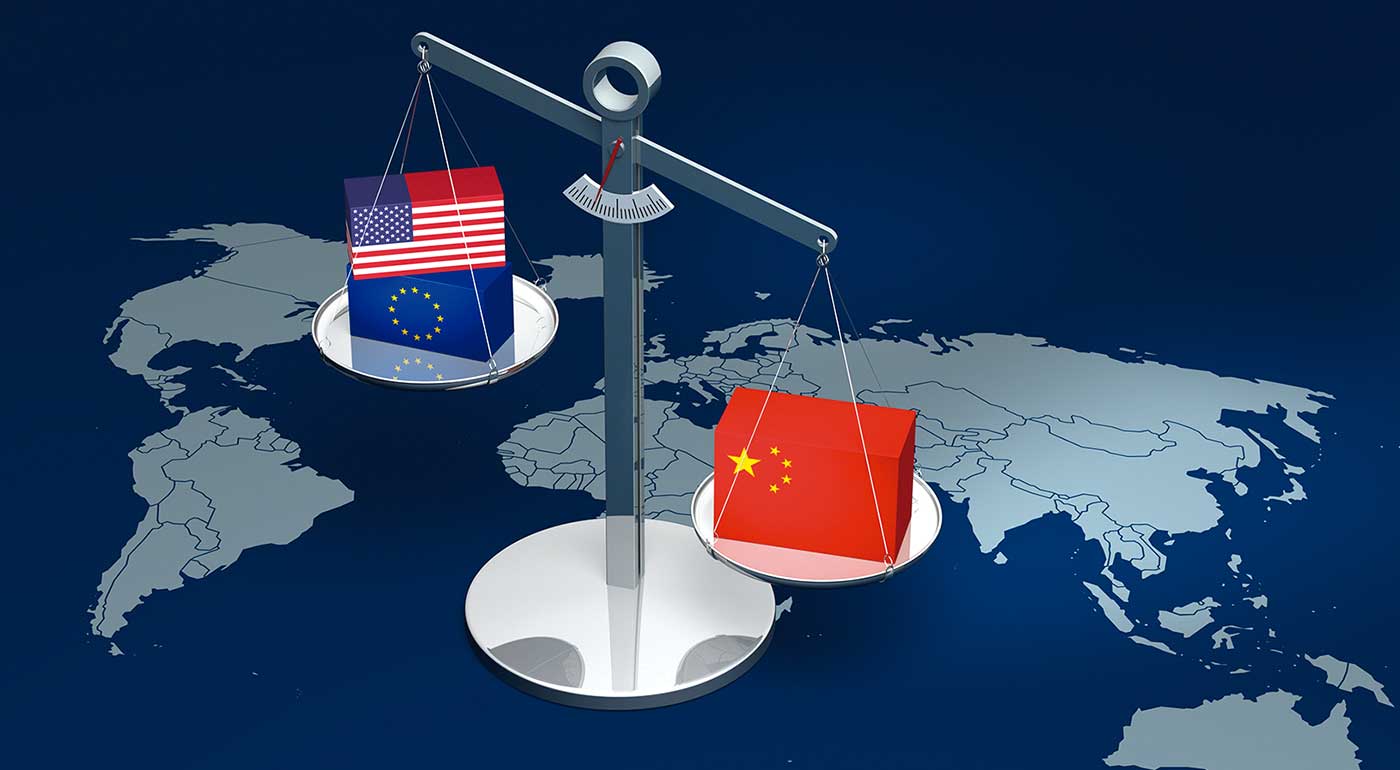
Why China? - China's Economical Power
China's economic growth has been unbroken for at least three decades. The world has been astonished that even during the global economic crisis in 2009, China's economy grew by 9.21%, only slightly below the average annual growth of 10.25% over the past 10 years. Today, China is already the strongest export nation on earth.
Steady growth and reduction of national debt
Today, China, with a gross domestic product (GDP) of 9 trillion dollars (estimated value of 2013) is the second largest economy in the world. If its economy continues to grow with this rate, it will pass the United States as the largest economic power in the world before 2030. China is one of the few nations, which economy grows steadily while simultaneously reducing its national debt. The national debt in 2010 has been 33.54 % of the GDP and fell until the end of 2013 to only 21.3%. In comparison to other countries: The U.S. has a national debt of 112% of its GDP (2010: 99%) and Japan 245 % of its GDP (2010: 215 %). In addition China may have a national debt of around 3 trillion U.S. dollars, but at the same time holds dollar reserves in the amount of 3.2 billion U.S. dollars.
The growing middle class and an important consumer market
The gap between rich and poor is great in China, but unlike many other industrialized nations, China has a growing middle class, which already includes more than 320 million people. With the increase of general prosperity, the importance of China as a consumer market also increases strongly. Already China is an important market for luxury items, No. 2 behind Japan. It is also is the largest market for mobile phones, and in 2009 it overtook the United States as the largest automobile market in the world, despite all the restrictions for vehicle registration. The importance of China as a consumer market reaches also the living rooms of the world: more and more Hollywood blockbusters include a China reference.
Growing international influence
Today already many Western traditional brands such as Volvo, Thomson or Putzmeister have been bought by Chinese corporations. Economic influence always also goes hand in hand with political influence. This fact has been clearly demonstrated first by the British Empire and later the United States. With its economic strength, China's influence is growing worldwide. Today, China's government holds bonds worth 1.27 trillion U.S. dollars, making it the most important funder of the United States. Hence, it comes with no surprise that the world kept silent when China in 2012 renewed its claim to the Diaoyu / Senkaku Islands, or that today only 23 states maintain official diplomatic relations with Taiwan (neither the U.S. nor most European countries). Whether, as Martin Jacques titled his book, China will rule the world, remains questionable. One thing is clear however: It will play a crucial role in the world of tomorrow.
